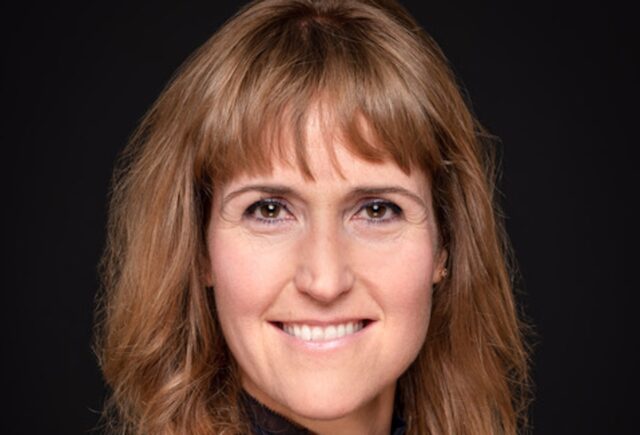Nick O’Donohoe, chief executive officer of CDC Group, the UK’s development finance institution, talks to Impact Investor about why he’s still committed to Africa.

CV Nick O’Donohoe
- CEO CDC Group 2017-present
- Senior Advisor Bill & Melinda Gates Foundation 2016-17
- CEO Big Society Capital 2011-15
- Global Head of Research JPMorgan 1996-2011
- Executive Director Goldman Sachs 1981-96
The coronavirus pandemic triggered much debate about whether investors would turn away from Africa. Post-Brexit, the UK government is openly seeking to pivot towards East Asia in its overseas priorities.
This makes CDC’s renewed commitments to Africa doubly important. In January of this year, it announced a commitment to invest over US$1bn again in African businesses in 2021.
As the world’s largest bilateral development investor in Africa, CDC has invested more than £2.7bn in African businesses over the past three years. In 2019, CDC’s investments supported over 320,000 direct jobs in Africa, contributing close to US$1.5bn in taxes to local economies, according to the bank.
Healthy pipeline
The UK government’s development investment arm recently unveiled two major initiatives: a telecoms consortium bid in Ethiopia and a $100mn corporate debt investment in its long-term partner ETG, an agricultural conglomerate that connects smallholder farmers – many of whom are women – to world markets.
CDC has had very little exposure to the industries most affected by the pandemic, such as tourism and transportation.
Fortunately, according to O’Donohoe, capital preservation of CDC’s African investments has turned out to “not be as big an issue as we originally thought.”
And O’Donohoe says he is “pleasantly surprised” by the developing pipeline of new investments. Crucial for CDC’s success has been their build-up of overseas offices, their ‘eyes on the ground’, something O’Donohoe says he is committed to continuing.
Investment policy post-Covid
With its renewed commitment to ETG, which is one of its biggest corporate debt investments to date, CDC aims to improve crop yields and farmers’ livelihoods for more than 55,000 farmers in Africa.
ETG provides the farmers with fertiliser, which will boost crop quality. Its warehousing and distribution centres give farmers the chance to store their crops until prices are high when ETG will sell the produce on the global market.
Earlier this month, the government of Ethiopia awarded a consortium of telecoms giants including Vodafone and Sumitomo as well as CDC Group a telecom license worth $850mn.
With a population of 110 million, Ethiopia is considered one of the world’s largest untapped telecoms markets. The deal is expected to create jobs for 1.5 million Ethiopians and generate $8bn in internal investment.
The pandemic has changed CDC’s investment approach. O’Donohoe says “the race to develop a Covid-vaccine saw increased collaboration between public and private bodies as well as foundations and multilateral organisations.”
He’s placed CDC right in the middle of this. Last July, CDC’s wholly-owned subsidiary MedAccess provided UNICEF with a guarantee of up to $50mn to secure key medical products, including diagnostic tests and clinical management supplies, for low- and middle-income countries in Africa and South Asia in the fight against Covid-19.
O’Donohoe has also put an increased emphasis on investments in new technologies. CDC’s co-investment in mPharma, a Ghanaian healthcare company that uses technology and data to create efficient supply chains within the vast and fragmented pharmaceutical market in Africa, is something O’Donohoe says he “is particularly proud of.”
“A highly political role”
An Irishman educated at Trinity College Dublin, O’Donohoe may be considered something of an outsider in the British establishment. Although he admits running CDC is “a highly political role,” he also once described his role as his “dream job.”
CDC Group, whose only shareholder is the British government, has often had to contend with a hostile UK press. Long before O’Donohoe’s arrival in 2004, it was severely criticised for spinning out a private equity manager – Actis Capital – 60% of which was subsequently sold to management.
At one point, the UK’s satirical magazine Private Eye devoted some seven pages to criticism of the organisation. In 2011, the UK government sought to clean it up.
O’Donohoe, who is currently in talks with the UK government to draw up a new five-year plan, says “there will always be some people who simply don’t believe in development finance.”
He points out the critics pick on “legacy investments” – decisions of previous management with minuscule portfolio impact. CDC has some 1,200 investments.
Containing fallout from UK government budget cuts
Previous UK governments have been keen to support international development, welcoming its ‘soft power.’ Former British Prime Minister David Cameron even increased the development budget to 0.7% of the country’s gross domestic product.
But the current government, led by Conservative Prime Minister Boris Johnson, recently announced a major cut – to 0.5% of GDP.
This will impact CDC going forwards, though the precise details are yet to be revealed.
Still, O’Donohoe is optimistic he can contain the fallout. “After all, 75% of our funding comes from investment returns,” he says.
“The Zeitgeist was changing”
Having started his career with long stints at US investment banks Goldman Sachs and JP Morgan, O’Donohoe had somewhat of an epiphany when he attended a conference hosted by the Rockefeller Foundation in northern Italy in 2007, where the term “impact investing” was first coined.
O’Donohoe says he foresaw “an important change in the way finance worked,” and that he became aware that “the Zeitgeist was changing.”
People were “moving away from the ‘Friedman-esque’ approach to capital,” he said, a reference to Milton Friedman, a champion of ‘trickle-down economics’. For O’Donohoe, “impact investment was created then.”
From that point on O’Donohoe’s career has pivoted towards social finance. He became JP Morgan’s ‘senior sponsor’ of social finance. In 2011 he took the helm at Big Society Capital, a leading UK social investment firm. Progression to the leadership of CDC a few years later was a natural stepping stone.
Gender lens
The fallout from the pandemic has distorted gender disparities in many parts of the developing world. O’Donohoe believes “the Covid crisis re-enforces that our response to all the great global challenges needs to come with a gender lens.”
He made sure his organisation joined the multilateral effort 2X Challenge which has committed to investing $3bn in companies that help women.
And finally, the Irishman is bringing those consummate political skills to the fore in his multilateral approach to investment.
He feels that the successful scientific leap towards Covid vaccinations has led people to question “why not apply the same urgency to our biggest challenge – climate change?”
CDC has committed to net zero emissions by 2050 for all its investments, and O’Donohoe is determined that “we accelerate and support a green recovery.”
A big part of this will be his new emphasis on a “just transition” to a carbon-neutral world and he has led efforts with some 450 development banks to this end.





